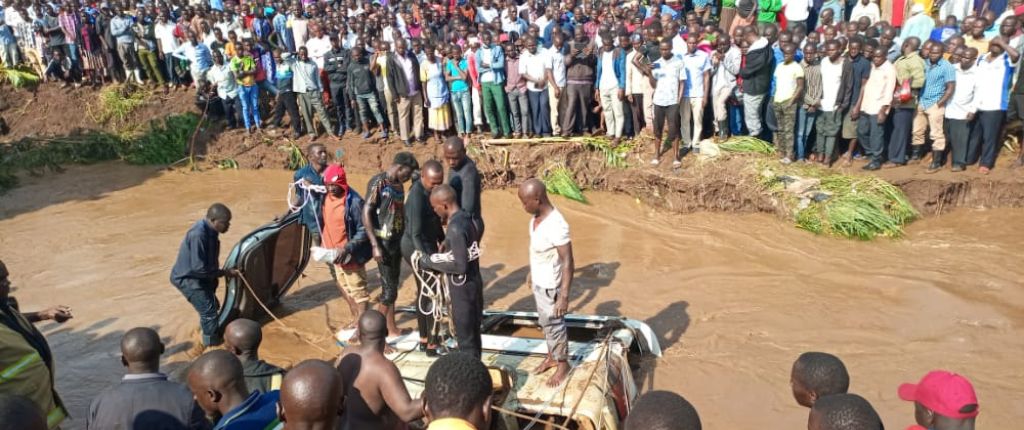
Inclusive humanitarian disaster risk reduction
People with disabilities are exposed to more risks during disasters. To better protect them in disasters and minimize the risks, we advocate for their rights and address various governmental and non-governmental key actors in humanitarian aid for this purpose: from national ministries to self-advocacy organizations of persons with disabilities. Their capacities are to be strengthened and developed, particularly in the area of inclusive humanitarian disaster risk reduction and assistance.
In cooperation with the Christoffel Mission for the Blind (CBM), we are implementing this project in particularly disaster-prone countries in Africa, Asia and South and Central America, with Malteser International taking over implementation in Uganda, Myanmar and Colombia. In Uganda, we work closely with the National Union of Women with Disabilities of Uganda (NUWODU) to strengthen the rights of girls and women with disabilities.
In Uganda, the work of our partner NUWODU focuses on the Kasese district in the west of the country. Natural disasters such as floods, droughts and landslides occur frequently here, so many governmental and non-governmental actors have already taken disaster risk reduction measures. However, people with disabilities have hardly been included in the planning of these measures and their needs have rarely been taken into account. This can have devastating consequences: For example, they remain excluded from the distribution of relief supplies and other humanitarian aid because barrier-free access to distribution stations is not guaranteed. Nor do they always have access to sanitary facilities or to education and health services, or to appropriate communication of information about impending disasters. Girls and women with disabilities often suffer multiple discrimination and are exposed to particular dangers.
The aim of the project is to reduce the risks faced by people with disabilities in disaster situations. Relevant actors at the global level and in the eight target countries - in this case, Uganda - are to apply inclusive approaches to the planning and implementation of humanitarian assistance and disaster risk reduction. It also aims to build the resilience of populations in selected communities, particularly people with disabilities, to external shocks such as natural disasters.
- Trainings for and promotion of national governmental and civil society actors
- Advocacy work at regional and global conferences
- Conduct a study on the state of research and implementation in the field of inclusion of persons with disabilities in humanitarian assistance and disaster risk reduction
- Identify relevant research and policy gaps and implementation deficits
Project data
Financing: German Federal Foreign Office, Germany's Relief Coalition (ADH)
Partners: CBM, NUWODU
Country info
Capital: Kampala
Area: 241.040 km²
Population: approx. 48,6 million








